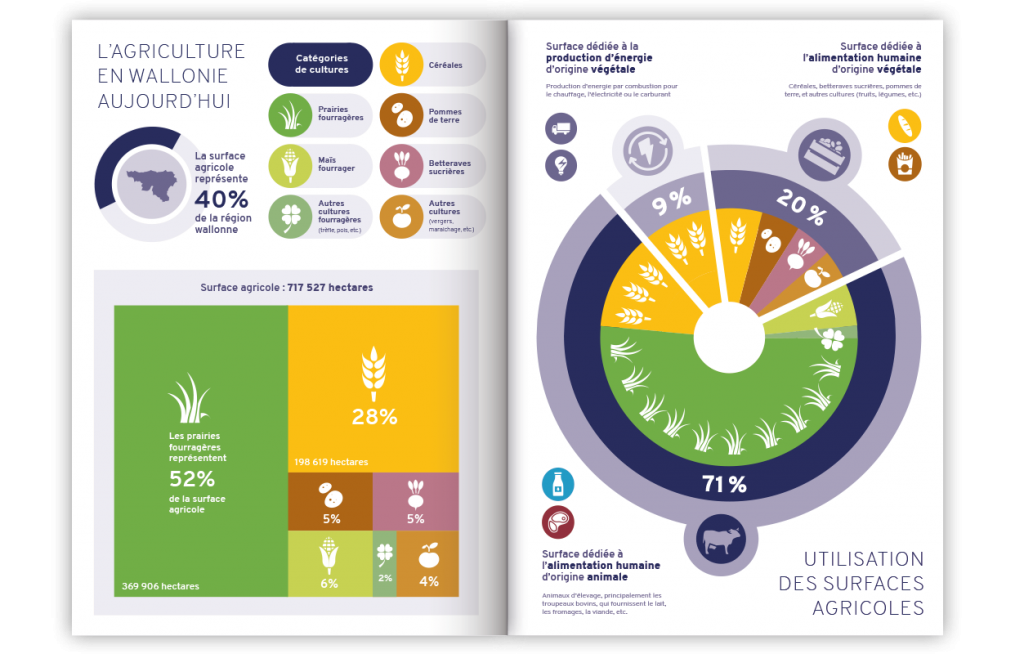Understanding agricultural systems and their evolution: a focus on Wallonia
How has Walloon agriculture evolved over the past ten years? What is the share of organic agriculture? How to measure the use of pesticides? What scenarios can we envisage for the future? This booklet provides data and analysis to foster debate on those questions.
Presentation
Read the full presentation
Full presentation
In the Walloon Region, as in many European regions, the agricultural sector faces the challenge of reconciling the productive aims of agriculture, reducing its environmental impact and maintaining employment and good working conditions.
What are the main characteristics of the agricultural sector in Wallonia nowadays?
Which paths can we consider in order to reduce the use of pesticides while taking into account these different challenges?
This booklet highlights two different trajectories:
a trend scenario that continues the evolutions observed over the last ten years, and an agroecological transition scenario in which low-inputs production systems are favored, such as organic farming and ecologically intensive farming.
These prospective scenarios ca be used to discuss possible horizons for the Walloon agriculture and trajectories towards a lower use of pesticides. As in any prospective study, the consequences of the scenarios are not to be taken for granted: the efforts made over the next few years will make it possible to develop the agricultural system towards greater sustainability.

